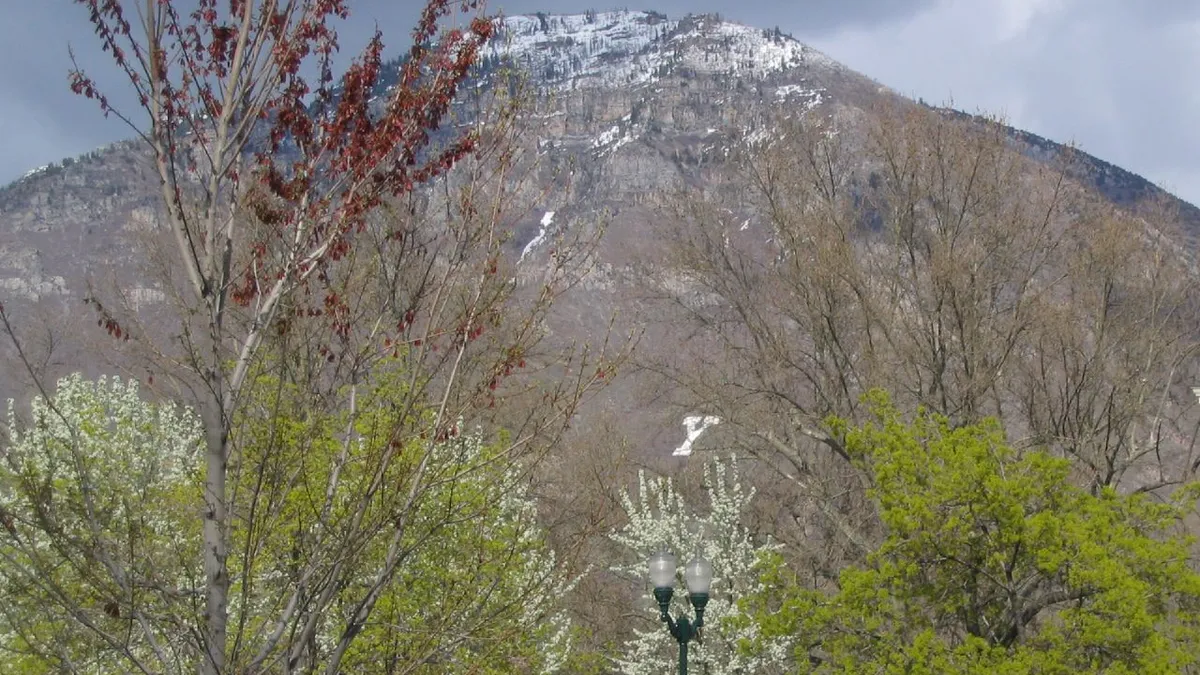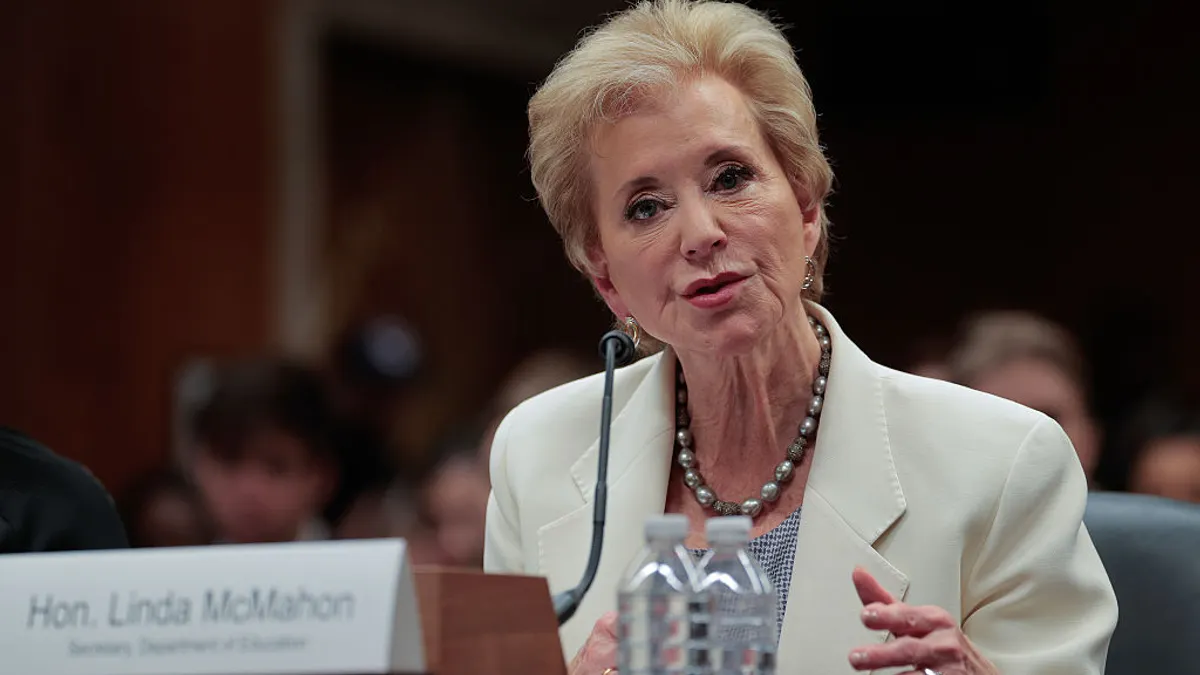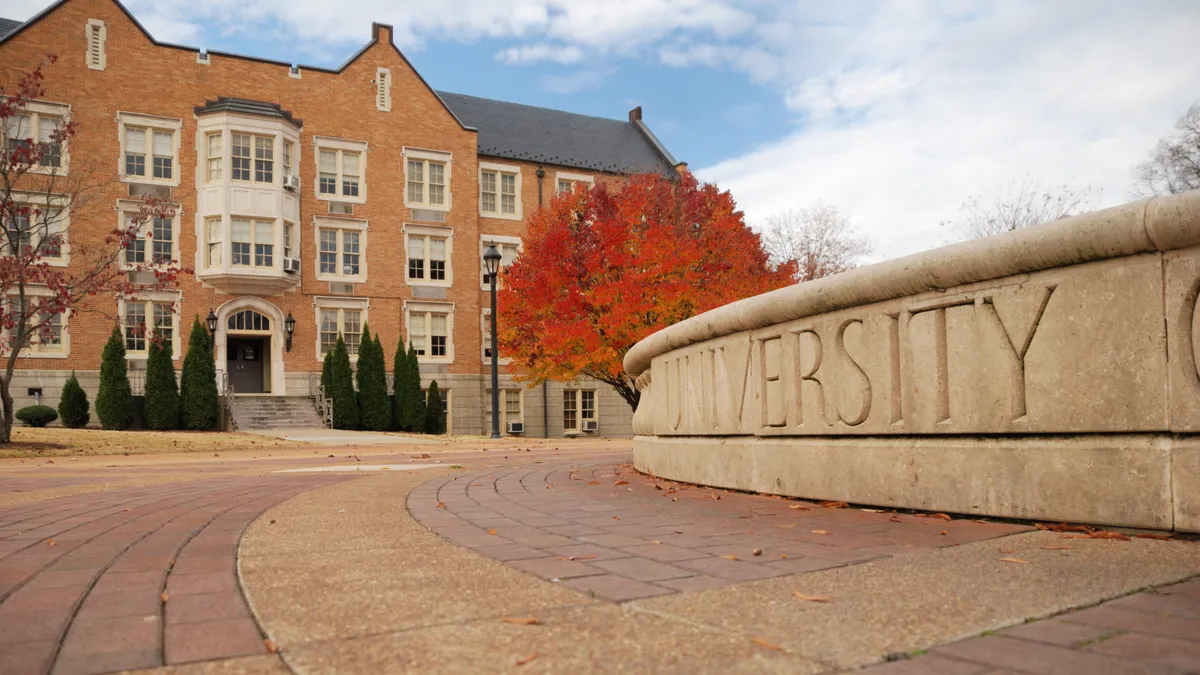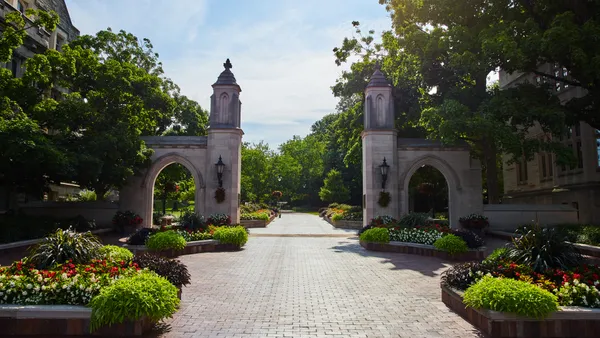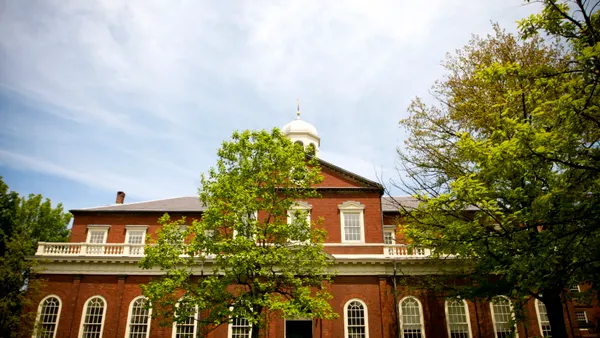For years, Brigham Young University has drawn criticism from LGBTQ students who felt its policies banning same-sex intimacy are repressive.
Now the Utah-based university, perhaps the most prominent Mormon institution in the U.S., is under federal investigation over whether it violated LGBTQ students' civil rights. The U.S. Department of Education is reviewing whether the university overstepped exemptions it holds under Title IX, the federal law that outlaws discrimination on the basis of sex.
Title IX protections include students' gender identity and sexual orientation. But with its exemptions, Brigham Young is allowed to, for instance, reject openly gay students from scholarships because their sexual orientation conflicts with the tenets of The Church of Jesus Christ of Latter-day Saints.
The Education Department's investigation is unlikely to have legal teeth, according to experts. Brigham Young likely did not overstep the boundaries of its exemptions, and any attempt by the department to punish the university may cause the institution to sue, they said.
Still, the situation will be closely watched for demonstrating the department's priorities under President Joe Biden, a Democrat, and Education Secretary Miguel Cardona. It is part of a long debate over anti-discrimination laws and religious exemptions, and it could indirectly translate into how campuses treat students.
The Biden administration is likely staking out its position on LGBTQ-related issues, said Jake Sapp, deputy Title IX coordinator and chief compliance officer at Austin College in Texas, who has studied the sex discrimination law extensively.
The administration may also be testing the limits of the Title IX religious exemption, which critics have said allows nonsecular institutions to openly discriminate.
"But there will be no consequences," Sapp said. "The exemption is very strong."
Honor code changes
The investigation originates from controversy over Brigham Young's Honor Code, according to news reports. Students must follow this code, which also bans sex outside of a marriage between a man and a woman, to remain enrolled.
In early 2020, the university deleted from the code a section concerning "homosexual behavior" that forbade all forms of same-sex intimacy. LGBTQ students and their supporters interpreted this removal to mean they were allowed to be more visibly queer, including by dating, holding hands or kissing members of the same sex.
But the university and church later clarified that a ban on same-sex activity still existed. In a statement, a church representative cited doctrine stating that only heterosexual marriage is permitted and indicating same-sex behavior isn't compatible with the Honor Code's principles.
The university's perceived reversal spawned campus demonstrations against the administration at the time. And bitterness over its rules still lingers. Last year, a group of students lit up a prominent landmark, a large "Y" on an area known as Y Mountain, in rainbow colors in protest. The university recently banned protests on Y Mountain.
The Education Department is investigating whether the university's treatment of LGBTQ students falls in line with its Title IX exemptions or if it is violating their rights by unfairly disciplining them in comparison to their heterosexual peers.
A department spokesperson confirmed its Office for Civil Rights started the investigation Oct. 21 but declined to comment further. The spokesperson did not provide a copy of the complaint that led to the investigation.
Brigham Young does not expect OCR to take further action after its probe, university spokesperson Carri Jenkins said in an email.
"OCR has repeatedly recognized BYU’s religious exemption, including in connection with this case," Jenkins said.
50 years of exemption
The religious exemption to Title IX has existed about as long as the law itself, which took effect in 1972.
Several years later, in 1976, Brigham Young became the first institution to formally receive a Title IX exemption.
But as Kif Augustine-Adams, a law professor at Brigham Young, noted in research about the law, "the process by which OCR and BYU arrived at the exemption was rocky."
Brigham Young's president at the time wrote to the federal government, notifying it of the institution's exemption, not requesting one. The president "boldly asserted" that the exemption was inherent, Augustine-Adams wrote.
A similar process exists today. Religious institutions don't ask the department for an exemption. Instead, these colleges claim exemptions from the law and then the Education Department affirms those exemptions. Colleges sometimes write to the department for confirmation they are exempt, but they are not required to.
The department historically has not released the names of colleges with religious exemptions, though the Obama administration broke with this practice before the Trump Education Department once again began keeping the names private.
After the department opened its investigation into Brigham Young, the university's president, Kevin Worthen, wrote to OCR in November. Worthen described how the college's faith forbids certain practices, including same-sex relationships, and asked for confirmation of its Title IX exemption.
This month, Assistant Secretary for Civil Rights Catherine Lhamon wrote back to Worthen, outlining the university's 15 exemptions to Title IX. They encompass admissions, recruitment, housing, counseling and financial assistance.
If Brigham Young had told students explicitly that its policies allowed for same-sex activity and then "baited and switched" them, then it might have a problem, said Sapp. But the institution is clearly controlled by a faith-based entity and broadly makes that known, he said.
"It's very clear that BYU is going to be fine here," Sapp said.
In the remote chance that the department finds the institution infringed on the law, then Brigham Young would likely work with the agency to develop an agreement to remedy those violations, said Blaze Bowers, assistant vice president for academic and student support services at Lincoln Memorial University.
Institutions can have their federal funding revoked if they violate Title IX, though this has never occurred, said Bowers, who has studied Title IX and higher ed law with Center for Excellence in Higher Education Law and Policy at Stetson University.
It "raises an eyebrow" that the department is looking into Brigham Young, because faith-based institutions' exemptions hold up under legal scrutiny, he said.
Some have called for the religious exemption to be thrown out altogether. A group of more than two dozen current and former attendees of evangelical colleges sued the Education Department last year, arguing the exemption should be struck down as unconstitutional.
The Biden administration is seeking ways to execute its policy positions, Bowers said. The department is currently writing a draft regulation that will govern Title IX that is due to be released in April. But experts don't think the administration will remove the exemption from its proposal.
And last year, it determined that Title IX protected against discrimination based on gender identity and sexual orientation. In making the move, the Education Department relied on a 2020 Supreme Court ruling, Bostock v. Clayton County, that established the protections in federal employment law.
"It's going to be a balancing act," Bowers said. "How will the Biden administration facilitate and carry out religious interests with anti-discrimination laws and regulations that protect LGBTQ students on college campuses?"



